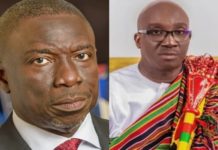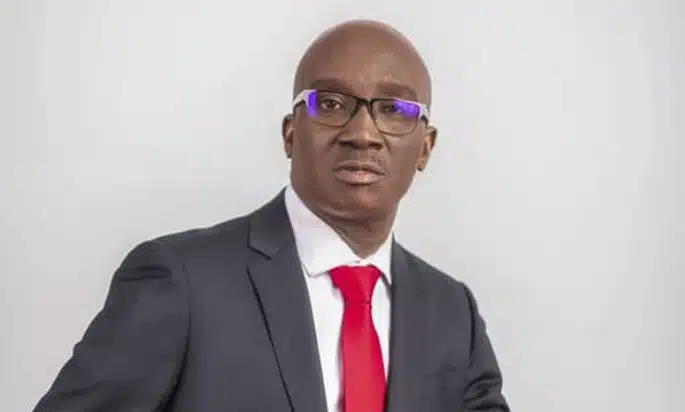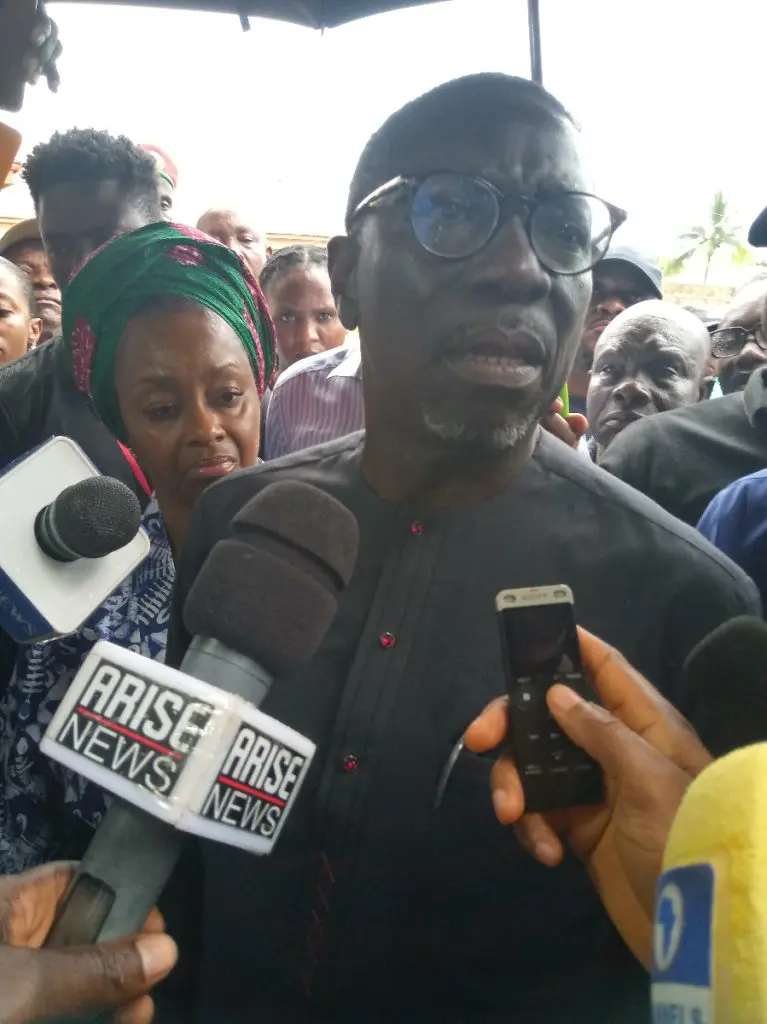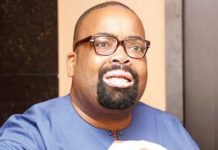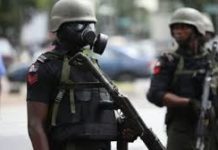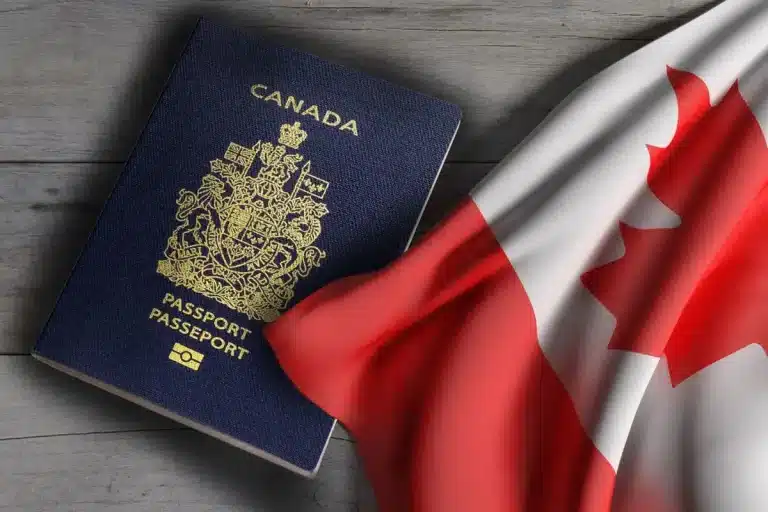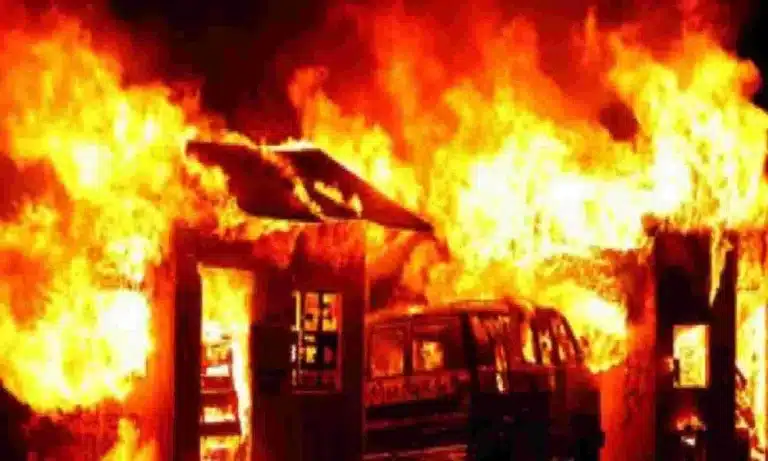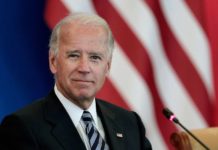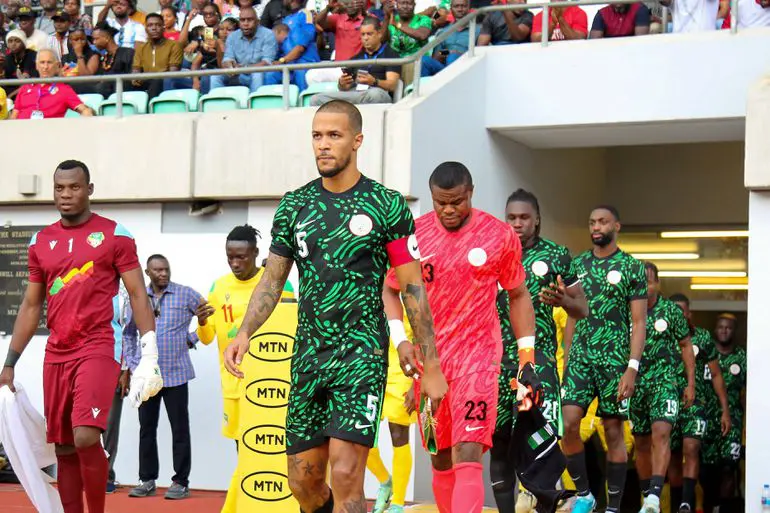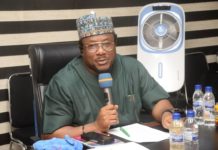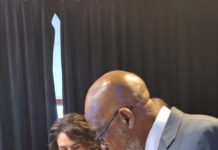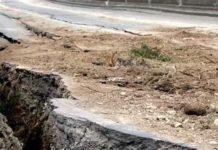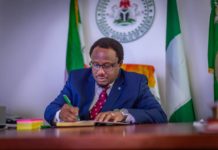The Deputy Secretary General of the United Nations H.E Hajiya Amina J. Mohammed, GCON, who was the guest lecturer at the Association of Foreign Relations Professionals of Nigeria (AFRPN) Annual conference/lecture 2024, held in Abuja on the 26th of March, has said that political crisis, instability in Africa is linked with lack of progress in Sustainable inclusive development.
Mohammed stated this while delivering the 6th Annual AFRPN lecture in Abuja with the title “Unconstitutional Change of Government and Attainment of AU63 and UN SDGs-The Case of West Africa and the Sahel Subregion “.
According to Amina Mohammed, “This topic is also a strong reminder that political crisis and the ensuing instability it often creates does not emerge out of thin air. There are root causes. It is strongly linked with a lack of progress on sustainable, inclusive development. It is the result of choices that the world makes-or fails to make in relation to supporting countries as they heal divisions and climb the development ladder.
“Together, we would need to build pathways for solutions that can not only bridge political and social divides within West African and the Sahel but can spur development and provide hope and a life of dignity for the over 100 million people who call our Subregion home”. Her words: “The global context within which our discussion takes place sees the last few years marked by challenges the world has not seen since the end of the second World War and the creation of the United Nations. From the massive health and socio-economic impacts of the Covid-19 pandemic. To lingering, ever-increasing poverty and inequality. To the multiple wars and crises in Sudan, the DRC, Ukraine, and the catastrophic conflict in Gaza, all exacerbating the global cost of living crisis. To the continued climate chaos that is causing weather-related disasters and creating an uncertain future for people and countries on the front lines of the crisis.”
She further stated, “In the face of these challenges, and despite the efforts of so many around the world, global solidarity, respect, and multilateralism have largely been missing in action. National populist interests have prevailed over collective multilateral solutions.
Hate speech, fake news, and mis- and disinformation have inflamed populist sentiment and helped to feed the illusion that what happens beyond national borders is of little interest or concern.
Meanwhile, the global systems and institutions designed for different times and created to foster solidarity and build common solutions have failed to deliver the responses and results the people of our world need.
“Billions of people are paying the price — enduring poverty, hunger, lost employment, rising costs, and fading hope for the future and in what the world can achieve by working as one.
“Here in our region, one of the many results of these structural failures is the trust deficit, broken governance and weakening of the social contract giving cause to the current cascading unconstitutional changes of government in West Africa and beyond.
Each and every one of these changes is a stark reminder of the deeper and more structural issues that we must address as a global community. Let us remind ourselves that we are living in a world deeply connected by its norms and standards to financial systems and trade.
“These turbulent unconstitutional changes also represent a “worst-case scenario” for sustainable development across West Africa and the Sahel — as we draw closer to the deadline to achieve the Sustainable Development Goals, many of which are slipping from reach.
“They also represent a major barrier to the bold vision of peace and prosperity put forward by Agenda 2063.
“Within this wider context, let me turn to the specific question posed by this lecture and proffer four challenges that demand our collective engagement and constructive response.
First — we need to confront the departure from democracy and its norms that we witness in recent unconstitutional changes of government.
“Centuries of colonialism and external influences have left an indelible mark on our societies, hindering the organic development of a constitutional order that reflects and responds to people’s rights and aspirations.
Constitutions should be living documents that capture the essence and hopes of the peoples whose paths they would guide. The custodians in our elected offices should be held to account for protecting the integrity of our guiding principles enshrined in the constitution.
“However, in West Africa and the Sahel, we find ourselves at a critical juncture. While, existing constitutional frameworks may not always fully reflect the true aspirations of our diverse needs and complexities in the development journey, bringing about tensions in societies, resulting in conflict and the breakdown in law and order. We must constantly use the structures of governance to hold to account and address the gaps in the course of our implementation.
“Perhaps it is time to revisit and chart a better course toward a self-defined, inclusive, and autonomous future is at hand?
In doing so, leaders must draw on the wisdom of our collective history to frame a robust and inclusive vision of the future now and for future generations.
This means creating space for sincere, trust-based dialogue and a concerted, and good-faith effort from all stakeholders to address the tensions and divisions that have plagued our societies. Recognizing diversity as a strength and not a weakness.
Coups are not the answer to constitutional questions. They are, at best, a symptom of deeper discontent, a red flag not to be dismissed.
“As the Secretary-General said; “Many countries face deep-seated governance challenges. But military governments are not the solution.
”We must create the conditions that allow our citizens to address the root causes of political instability, even if it means having the courage to challenge the model—not the principles of democracy we practice.
“Second — peace and security are impossible without sustainable, inclusive development, and both are needed to attain our human rights.
Treating the symptoms of the challenges is not good enough. Today, development is in an emergency, and we must find ways of stemming the crisis by investing in the SDGs, a framework for sustainability.
We need to tackle the broader underlying systemic factors that allow instability to take hold, starting with hunger, poverty, and a lack of education and opportunity.
For instance, strengthening our social protection floors would allow us to deal with the complex issue of poverty and provide a level of dignity desired by all.
To give an example — in Nigeria, ten million children are out of school. To address this, it is not enough to support these children with boarding school arrangements, albeit a temporary measure. We will only succeed by addressing the broader, long-term needs of families and communities so that children do not end up on the streets.
People everywhere aspire for their children to have every opportunity to build a better, more prosperous life.
This means providing avenues for education, skills, and meaningful employment — especially for young people and women who have a right to their agency.
It means taking command of our natural resources, promoting economic diversification and innovation, fostering social cohesion, and ensuring environmental sustainability.
Crucial to this is ensuring that women and youth are active participants and leaders in shaping our collective future. This must happen at all levels of the State.
“Third — we need to work to rebuild the social contract across the region.
The social contract—the bond between people and the authorities that govern them—has been frayed by decades of underinvestment, crises, and corruption.
In order to achieve this, we must continue to build and strengthen our existing institutions that can serve as pillars for positive change. The African Union (AU) and its institutions and the African Development Bank (AfDB) represent critical mechanisms through which we collectively address common challenges and pursue shared goals.
By investing in these institutions and empowering them to fulfil their mandates effectively, we demonstrate our commitment to a vision of regional cooperation and solidarity.
However, rebuilding the social contract can not be achieved through institutional measures alone. It also requires a genuine commitment to the principles upon which the AU was founded: a united Africa characterized by peace, prosperity, and shared progress.
Reconnecting with this vision means prioritizing the interests and well-being of all our citizens. It means fostering inclusivity, accountability, and transparency in governance processes and actively involving citizens in decision-making processes that affect their lives.
When people do not see their governments delivering, they lose faith and stop participating in democratic governance, whether by boycotting elections, avoiding taxes or — in the most extreme cases — turning to other, more violent means of expressing discontent.
“Rebuilding the social contract means building strong democratic institutions and promoting people-centered governance, all grounded in the UN Charter, human rights, and guaranteed access to basic services and inclusive development for all people, no matter who they are.
It also means ensuring strong regional integration. The countries of the region are strongest when they stand together. They can deliver better for all their citizens when they pool resources.
We’ve seen, for example, how regional integration has been a driver for economic development in West Africa and the Sahel. Cooperation among countries has proven to be key to overcoming challenges common to all.
Despite current challenges — including Burkina Faso, Mali, and Niger’s withdrawal from ECOWAS — we must continue to advocate for dialogue and cooperation.
We must work together with ECOWAS to achieve its dream of an “ECOWAS of the People”, as it continues to reshape itself in line with emerging realities and changing aspirations in the region.
“Let us remember that we are a dynamic region of people on the move, driven by various factors such as migration, the escalating impacts of climate change, conflict and security concerns, which contribute to a pervasive sense of vulnerability and anxiety among our populations.
We must replace fear and need with free trade, cooperation, and prosperity.
“Finally, we need to rethink our global structures to better support the region, the continent, and indeed the entire developing world.
For too long, the international governance architecture has ignored the voices of the Global South.
Our countries have been continually denied a seat at critical decision-making tables — from multilateral development banks to the UN Security Council and are left behind when it comes to equitable access to basic equalizers such as technology and its digital advancements, knowledge sharing and technological transfer – including intellectual property rights.
“We’ve all witnessed the disastrous results of these global imbalances – the stagnation and stalemate – the injustice and exclusion of billions of people
The Global North has been able to employ monetary measures to support their economies in times of crisis and recovery. In contrast, African countries and other developing countries have been forced to increase their debt burden to address inflation, invariably the negative impact of external policies
“As a result, the Global South is trapped servicing debts, leaving no fiscal space to address the fundamental needs of its population.
This is the backdrop to the Secretary-General’s initiative to host a Summit of the Future in September that will focus on reforming and revitalizing multilateralism at 75 years, rebuilding trust and global solidarity, and strengthening international cooperation.
The Summit will be a moment to show that we are capable of putting aside our differences and taking key decisions on the issues that affect us all.
Negotiations are underway on a Pact for the Future that will include specific commitments on peace and security, the global financial architecture, and more.
Countries are currently discussing steps to make international financial institutions more responsive to today’s challenges and more representative of today’s world.
“They are also considering reforms to global arrangements for peace and security as part of the Secretary-General’s New Agenda for Peace.
The time has come to update our collective security toolbox so that we can find pathways to end existing conflicts and prevent new ones in traditional and new domains.
“The Summit will also consider a Global Digital Compact that will outline shared principles for an open, free, and security digital future for all.
Much greater cooperation and solidarity are needed to close the digital connectivity gap, avoid fragmentation of the internet, share data and build digital public goods, and ensure a universal approach to artificial intelligence.
“The Summit of the Future is an opportunity to rediscover common ground and shape multilateralism for years to come.
It is an opportunity that Africa can not afford to miss. It is an opportunity for foreign policy and diplomacy to rebirth itself.
The Secretary-General and I count on your strong engagement and support.
“In closing, the importance of leadership, especially that of women, cannot be overemphasized. Leadership must be seen, nurtured, and sustained from the home to the pulpit.
If African solutions to African challenges and opportunities are to be more than rhetoric, we must have an insistent and unified voice within the G20 and other global platforms.
It is essential that our collective voice and unified positions shape our regional future.
Our continent stands at a crossroads as the world appears to have taken its gaze off Africa.
“We may appear down, but we are far from out. African leaders must continue to forge a path towards delivering our vision for the continent enshrined in Agenda 2063 and the 2030 Agenda.
“Leaders must demonstrate unwavering unity and a firm commitment to uphold our values and beliefs.
They must stand together, with no light between them, determined to live up to the courage of their convictions.
In this spirit, the United Nations will continue to work hand in hand with Africa to achieve sustainable peace and development.”
Earlier, in his welcome address, the President of AFRPN, Ambassador Gani Lawal, noted that the topic of the lecture, like the five before it, has been carefully chosen to create opportunity to listen to the perspectives of a nodal International Relations professional who had been following and researching into the historical antecedent and outcome of issues, actions and inactions that led to this development. The Chairman of the occasion, His Excellency Prof. Ibrahim Gambari, CFR, the immediate past chief of staff to former President Muhammadu Buhari, who was represented by Amb. Ransome Dede, former Nigerian Permanent Representative to the United Nations who stated that every observer of the current affairs in Nigeria will know that we are in a turbulent time.
The Chief Host of the occasion, Amb.Yusuf Tuggar, Honourable Minister of Foreign Affairs, noted that people who are clamouring for military government should realise where Nigeria was coming from with regard to military regimes. He stated that the first act of any military regime is to suspend the constitution and break the social contract between the people and the government. He posited that people should not romanticise the military regimes, which is often characterized by public executions by firing squad and abuse of human rights. He further stressed that democracy despite its shortcomings, is the ideal system of government and therefore requires constant work to improve.
The Chief Guest of Honour, His Excellency Vice-President kashim Shettima, was represented by his Special Adviser on Political Matters, Dr. Hakeem Baba Ahmed, whose speech posed the twin questions of why it is so difficult to sustain democratic process in Africa and why Africa’s democracy is too fragile.
The sixth edition of AFRPN Compend/Magazine was presented by the Honourable Minister of Foreign Affairs as well as presentations of plaques to the guest lecturer, Chairman of the occasion and Special guest of honour by the royal father of the day,his Highness, Alhaji Muhammadu Sanusi.
The event was attended by members of the diplomatic Corps as well as heads of security agencies and members of AFRPN, both serving and retired. The vote of thanks was given by Amb. Ahmed Ode to bring the event to a close.
END


